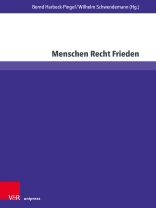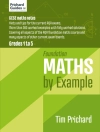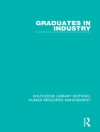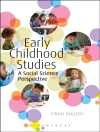Friedens- und Menschenrechtsbildung ist auf gelingendes Miteinander und aktive Beziehungsarbeit angewiesen. In den Beiträgen dieses Bandes geht es um die Ressourcen beziehungsfähiger und dialogbereiter Subjektivität, Beziehungen so zu gestalten, dass sich Recht, Gerechtigkeit, Menschenwürde und Bildbarkeit des Menschen berühren und aufeinander bezogen bleiben. Indem diese Grundformen aber auf eine geteilte Lebenswelt mit ihren durch Interaktion und mediale Kommunikation bezeichnet...
Friedens- und Menschenrechtsbildung ist auf gelingendes Miteinander und aktive Beziehungsarbeit angewiesen. In den Beiträgen dieses Bandes geht es um die Ressourcen beziehungsfähiger und dialogbereiter Subjektivität, Beziehungen so zu gestalten, dass sich Recht, Gerechtigkeit, Menschenwürde und Bildbarkeit des Menschen berühren und aufeinander bezogen bleiben. Indem diese Grundformen aber auf eine geteilte Lebenswelt mit ihren durch Interaktion und mediale Kommunikation bezeichneten Aufgaben bezogen bleiben, sind die Fachdisziplinen auf Kooperation in Forschung und Praxis und den Willen zur ethischen Reflexion und Dialogizität angewiesen. Mit den vorliegenden Essays wird dieses Verfahren erprobt. Der Band steckt das Terrain ab für die Konfiguration von Friedens- und Menschenrechtsbildung und entfaltet in methodischer, konzeptioneller und thematischer Hinsicht Verbindungen zwischen beiden.
Peace and human rights education depends on successful cooperation and active relational work. The contributions to this volume deal with the resources of relational and dialogical subjectivity to shape relationships in such a way that law, justice, human dignity, and human formability touch and remain related to each other. However, since these basic forms remain related to a shared lifeworld with its tasks denoted by interaction and medial communication, the disciplines depend on cooperation in research and practice and the will for ethical reflection and dialogicity. The essays in this volume test this procedure. The volume stakes out the terrain for the configuration of peace and human rights education and unfolds connections between the two in methodological, conceptual, and thematic terms.












